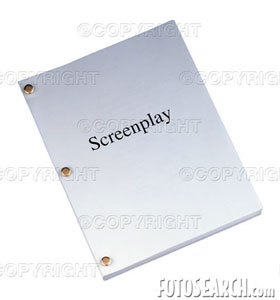 Back in the days when I was a comics editor, the creatives [art editor, assistant editor and me] often enjoyed a wonderfully combative relationship - arguing amongst ourselves sometimes, but more often arguing with those in power. At the company where I was working then, there was a culture shift during the late 80s and early 90s from it being a creative-led publishing entity to a marketing-led company. Marketing was in charge, ergo marketing knew best - or so we got told. But being able to sell a few magazines didn't instaneously qualify our bosses to get involved with editorial decisions, at least as far as I was concerned.
Back in the days when I was a comics editor, the creatives [art editor, assistant editor and me] often enjoyed a wonderfully combative relationship - arguing amongst ourselves sometimes, but more often arguing with those in power. At the company where I was working then, there was a culture shift during the late 80s and early 90s from it being a creative-led publishing entity to a marketing-led company. Marketing was in charge, ergo marketing knew best - or so we got told. But being able to sell a few magazines didn't instaneously qualify our bosses to get involved with editorial decisions, at least as far as I was concerned.So we used jargon and psuedo-science to keep the powers that be at bay. One of my favourite terms was Creative White Space - CWS for short. [That's not to be confused with BWS, Black With Stars, a shortform coined by pencillers to tell inkers they have to ink in an outer space background that conveniently saved the penciller from having to expend his time pencilling in some stars for the inker to ink around. BWS also stans for comic art maestro Barry Windsor Smith, but that's another matter entirely.]
Sometimes, often in fact, less is more. In magazine design, fewer coverlines give those you do use more impact. Fewer design elements make for a cleaner, more elegant design, IMHO. And it seems the use of CWS is just as important when it comes to writing screenplays, as demonstrated in a new posting by ICM Executive Story Editor Christopher Lockhart. Click the headline to jump direct to the relevant section.
 If you're a wannabe screen scribe like me, you ought to be reading Lockhart's blog The Inside Pitch regularly. It's chock full of intelligent, interesting comments and observations. Me, I'd never heard of Vertical Writing until I read this latest posting. Now I might give it a crack, see if it suits my still-fledgling style...
If you're a wannabe screen scribe like me, you ought to be reading Lockhart's blog The Inside Pitch regularly. It's chock full of intelligent, interesting comments and observations. Me, I'd never heard of Vertical Writing until I read this latest posting. Now I might give it a crack, see if it suits my still-fledgling style...
1 comment:
If you're interested in the effect "Vertical Writing" can have on a script, run a compare-and-contrast of Walter Hill's redraft of Dan O'Bannon's draft of "Alien". Both can be found on www.movie-page.com.
Post a Comment